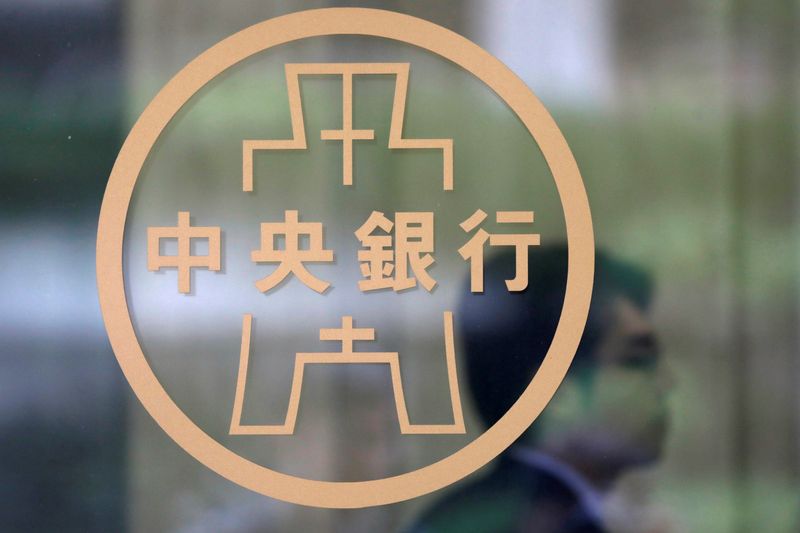By Liang-sa Loh
TAIPEI (Reuters) - Taiwan's central bank will make timely adjustments to monetary policy considering both global moves and domestic economic performance, but is not in a rush to raise rates outside of the bank's usual schedule, two sources said.
Central banks in the Philippines and Singapore have made off-cycle interest rate rises this month in the face of inflationary pressure and ahead of another expected increase by the U.S. Federal Reserve next week. The European Central Bank is set to raise interest rates for the first time in 11 years on Thursday.
At its last quarterly rate-setting meeting on June 16, Taiwan's central bank raised its policy rate for the second time this year, by 12.5 basis points (bps) to 1.5%. Its next quarterly rate-setting meeting is scheduled for Sept. 22.
A source briefed on the matter, speaking on condition of anonymity, told Reuters the central bank will pay close attention to "changes" in the international and domestic economic and financial situation, and will "adopt appropriate monetary policies in a timely manner."
A second source, also briefed on the situation, said the central bank will look at Taiwanese economic indicators, including inflation, consumer spending, exports and joblessness.
"At present it does not look like there will be too quick of a move," the source said.
"The central bank is not scared of grey rhinos - what it fears most is black swans, which are very hard to predict, like the sudden outbreak of the Russia-Ukraine war or supply chain bottlenecks."
"Grey rhinos" refers to very obvious yet ignored threats, while "black swans" are unexpected but high-impact events.
The central bank has made off-cycle rate moves before, such as during the 2008-2009 global financial crisis.
The government has repeatedly said Taiwan's economic fundamentals are good, although it has cut the full-year growth forecast to below 4% and may cut it again.
Taiwan's export-reliant economy has been supported by a global shortage of semiconductors that has filled Taiwanese chipmakers' order books. On Wednesday, Taiwan reported strong export orders for June.
Still, Academia Sinica research fellow Ray Chou said that if Taiwan's central bank did not raise the policy rate in line with the Fed it would put more pressure on the Taiwan dollar, which has weakened 7% against the greenback this year. "Our inflation is not as serious as in the United States, but if we do not follow the rate increase, the widening of the spread will put devaluation pressure on the Taiwan dollar."

Taiwan's consumer price index (CPI) inflation rate hit a near 14-year high in June, expanding 3.59% from a year earlier, more than market expectations.
The preliminary reading for second-quarter economic growth will be released next Friday, with July's CPI data following on Aug. 5.